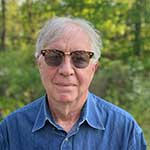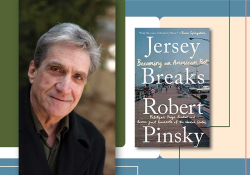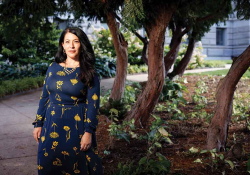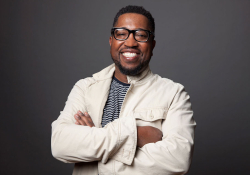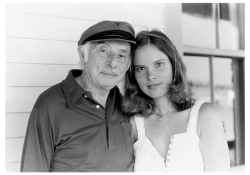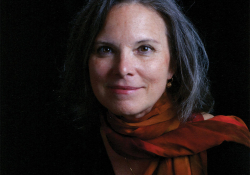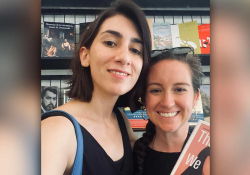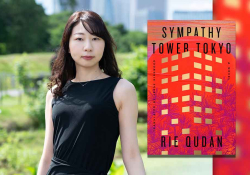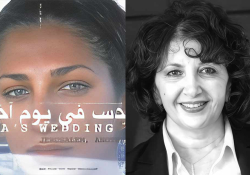“Emulating the Language of the Sacred”: A Conversation with Carolyn Forché
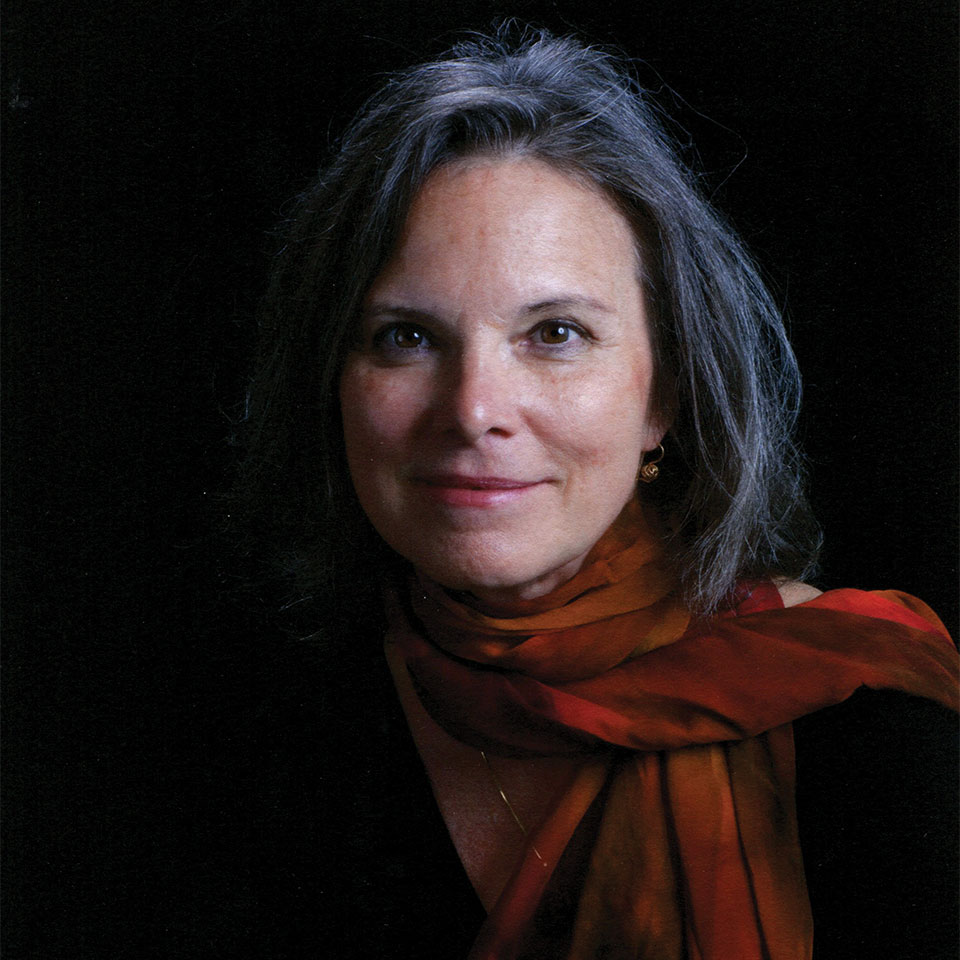
This three-part interview with Carolyn Forché took place over the course of the past year and a half and was recorded at three different locations: Carolyn’s house in Bethesda, Maryland; in the bistro of the Washington Square Hotel in New York City; and in her office at Georgetown University. (With regard to the addendum that appears at the end of the interview, I emailed Carolyn following the recent election to ask her if she would like to comment on the results. She responded the next day with a timely paragraph.) I had originally hoped that Carolyn and I could complete this interview in one sitting, but we agreed at the conclusion of our first conversation that we needed more time than a single afternoon to do justice to the arc of both her poetry and her career. Consequently, our subsequent interview sessions focused with greater probity on the “main things” of Carolyn’s multifaceted vocation and avocation as a poet, witness, and scholar. Although we didn’t conclude with any sense of final closure, I felt our conversations reached increasingly higher levels of clarity in their exploration of the ideas, poems, essays, books, vicissitudes, failures, and hard-won successes that have distinguished Carolyn’s eminent career.
Part 2: “Emulating the Language of the Sacred”
Chard deNiord: I’d like to ask you a question that Ilya Kaminsky sent me. Here it is, complete with a little introductory commentary: “Carolyn’s four books are incredibly different from each other. I can't think of another contemporary American poet who can claim every single book to be as formally different as Gathering the Tribes, The Country Between Us, Angel of History, and Blue Hour. There is something Picasso-like to her approach, from book to book. And yet, seen as a whole, her writing career is remarkably cohesive, there is a clear thematic arc going from Gathering the Tribes to Blue Hour and to the new poems that have appeared in journals over the past decade or so. I’m curious to know just how she’s managed this cohesive diversity in her work.”
Carolyn Forché: And despite certain thematic threads I think they all are, of course, produced by the same sensibility. They would emerge from a sensibility maturing over time, but we don’t relinquish our subjects, we very rarely escape our obsessions, especially those having to do with our early formation. So certain themes would be necessarily consistent over time. But for me, because I spend a great deal of time on each book, and I’m always reading and being influenced by others, and I have an aversion to repetition, so I didn’t want to parody my earlier work or repeat myself. So each one evolved differently, they were each different.
I think the impulse after The Country Between Us was toward the historical imagination and the archival imagination and thinking about things that had happened prior to my birth. And with The Angel of History, formally I think there were a couple of influences that I recognize. One of them was Edmond Jabès’s The Book of Questions. Another was the transcript of the subtitles of Lanzmann’s Shoah. I was interested in the way that subtitles read independently of the filmic images. They become polyphonic. I had been reading Walter Benjamin and especially his “Theses on the Philosophy of History,” part nine. I wanted to meditate on that. I understand that this is very difficult to unpack. There is a wide-ranging philosophical conversation about the significance of the figure of that angel.
deNiord: Yes, Walter Benjamin’s term—“the angel of history.”
Forché: It’s strange in a way that what we have is a photograph of a tomb sculpture from Genoa on the cover of the book, when in fact it probably should have been Klee’s angel, his drawing, a rather demented angel with spiral eyes, as I remember, and scrolls of hair. You’ve probably seen it. I started writing in these polyphonic long-lined sequences before I knew what they were. Daniel, whom I told you about, was living in Provincetown the winter that I began this work. He offered to babysit my child for two hours every day if I promised to write while he was away. He said, “You have to show me the pages.” And for a while I thought that what I wrote during that period were notes toward poems, that they were discreet lines—it felt as if I were transcribing. I had this idea, and the only time I saw it reflected in anything else beyond my own mind was when, about a year later, I saw Wim Wenders’s film Wings of Desire. In the first few sequences, wingless angels eavesdrop on the internal monologues of people riding on a train. I had that feeling—that I was eavesdropping in a way on the voices in the poem.
But the voices are the voices of people whom I actually encountered in my life. Elie was an actual woman with whom I shared a hospital room in Paris in May 1986, a month after my son was born. She was suffering from acute flare-ups of what she called “St. Anthony’s fire,” acute eczema. It flared up whenever she made an attempt to leave France to travel to California to visit her son. She couldn’t seem to leave France. She suffered greatly during the Holocaust, hiding first in Germany and then in France. She was trapped in that past, in her last hiding place. I took notes from her monologues the week that we stayed together. She seemed to be trying to transmit something. I heard an urgency in her voice with regard to her own history. She was a source for this book, entering as herself, as Elie.
The other was a woman in Hiroshima whom I met when I traveled there three years earlier, in the summer of 1983, to participate in the Asian Writers Conference on “Writing Under the Nuclear Cloud.” They invited twelve non-Asian writers, two from each of the nations possessing nuclear weapons. We met in Hiroshima and Nagasaki.
deNiord: Galway Kinnell accompanied you.
Forché: Galway went also, yes. He was the other poet invited from the United States. We traveled extensively in Japan, met people, talked, and joined panels and readings. We also participated in commemorative ceremonies such as laying a wreath at the cenotaph erected at the epicenter in Hiroshima. The woman who most affected me during this trip was the one whom I walked beside in the garden of Shukkei-en. I might have already told you this story. I have to admit that some of the rest I’m not sure about. I recognize images from memory.
The poem “The Notebook of Uprising” came from a journey I mentioned earlier—when Daniel and I went to the former Czechoslovakia very early in 1990, just after Václav Havel was, quite literally, carried to the castle on the shoulders of his countrymen and successfully installed as president of what was then still Czechoslovakia. My friend, the writer Eda Kriseová, worked in the castle with him, and we brought multivitamins there from the States to fortify her for the long hours of work. “The Notebook of Uprising” is a record of that journey. We drove from Austria to Bratislava, from there to Prague, and then through East Germany to East Berlin as the Berlin wall was being taken down. This poem also recalls El Salvador in certain passages and, in the present, is grounded in my life in Provincetown during the winter of its composition.
I felt my consciousness fragment during that time, and in the following years I wondered whether I would ever sustain a linear meditative narrative again. I felt that my mind had become a shattered kaleidoscope that would occasionally fall into patterns of coherent, sustained thought.
Most puzzling to me is “The Recording Angel.” In the winter of 1984 I was in Beirut—I don’t know if you recall the destruction by suicide bomb of the US Marine barracks, but it was that year. The USS New Jersey, a battleship in the Sixth Fleet, was stationed in the Mediterranean and was shelling the Chouf Mountains. In Ras Beirut, we were being fired upon from the east. Meanwhile, Israel was occupying part of South Lebanon. There were a number of militias with checkpoints in and around the city, and there was intermittent military engagement. I felt my consciousness fragment during that time, and in the following years I wondered whether I would ever sustain a linear meditative narrative again. I felt that my mind had become a shattered kaleidoscope that would occasionally fall into patterns of coherent, sustained thought. I kept seeing images from different parts of the world, gathering and recurring. I experienced this with a strange watchfulness, as if from a distance, but I felt compelled to follow where it went, so the riskiest and most challenging work was “The Recording Angel,” which displays this fragmentation, allowing these images to collide. Although I worked for a very long time on the revisions, it was probably an illusion that I was working methodically and systematically—how would that be possible? The last poems in the book are more or less discrete, except the last one, “Book Codes.” Each has a source. During World War II, Allied soldiers, called the “piano players,” went behind the lines to send back coded information. They called the method “book codes” as the messages corresponded to a particular text, decided upon in advance, and required that text to be decoded.
deNiord: Some of the source texts were . . . ?
Forché: One came from transcripts of the testimony of survivors of Hiroshima. “Elegy” is for Terrence Des Pres. “To make charcoal. / For laundry irons” is survival testimony from Claude Lanzmann’s Shoah, but “Elegy” was written upon Terrence’s death in 1987, and I imagine here that he returns to the Memorial to the Deportees in Paris and descends that stairwell again, as he did many times in life. That is where I found the Desnos poem, chiseled into the wall of the memorial. It may be an apocryphal poem. There are people who claim that it was not his, and it can’t be determined that this poem was actually dictated to the nurse who attended Desnos as he was dying of typhus. But this is the poem on the memorial wall, nevertheless. “The Testimony of Light” comes from the visit to Hiroshima.
deNiord: What do you feel was Terrence’s main influence on you?
Forché: Terrence and I were very close and grew closer over the years—as lovers, as friends, as companions in developing ideas about witness. We met just after he published The Survivor: An Anatomy of Life in the Death Camps, and he was taken up with touring, speaking, and serving on the committee planning the US Holocaust Memorial Museum in Washington, DC. He was deeply immersed in the thought and scholarship of the Shoah but didn’t want to focus his work strictly on this scholarship. The Survivor was essentially a reading of literary works. He had written his dissertation on Percy Bysshe Shelley. He wanted to continue with literary scholarship. I remember that during this particular summer, he had attempted two projects: one a biography of Edmund Wilson and the other a biography of Lionel Trilling. He gave up on both. At that time, I always traveled with a box of books in the trunk of my car, and I remember being a little desperate to cheer him up, and this might sound amusing, but I went down to get the box of books, which at that time included works by Nâzim Hikmet, who had spent half his adult life in prison. I had been reading him and also others who had experienced conditions of extremity, not only imprisonment but warfare, forced exile, military occupation, house arrest. I began reading poems to Terrence, and he kept asking for more. There were soon stacks of books on the table. It turned dark. Night came, more poems. And then he said, “I didn’t know about these poets.” He hadn’t, at that time, read very much modern and contemporary poetry in translation. He was a scholar of English Romanticism. And then he asked something that surprised me: Do we have poetry such as this? He began to read and consider the works of Adrienne Rich, Thomas McGrath, and many others, and this became the book Praises and Dispraises.
deNiord: Yes.
Forché: And there was, I believe, if I’m not conflating the two projects—Praises and Dispraises and the later, posthumous book, Writing into the World—an essay on Hikmet, an essay on Brecht, and also on Yeats, I think. He read these poems as survivor documents. At that time, as I have said, I was working with a group of scholars involved with the International Association for Philosophy & Literature. They were interested in the mark of extremity in the poetic imagination. We were reading Emmanuel Levinas, Jean-François Lyotard, and certain of the ideas of Richard Rorty. Around that time, Geoffrey Hartman invited us to visit the Fortunoff Video Archive at Yale, which was at that time the primary archive of videotaped survivor testimony. These scholars were very important to me in developing the thought of “poetry of witness” as an approach to reading apart from confessional or political poetry. Their thinking, and also Terrence’s, fell on fertile ground, you might say. At the annual IAPL (International Association for Philosophy & Literature) conference, we convened two panels on the subject of literature and witness. Meanwhile, I was photocopying from all these books for my students and wishing that I didn’t have to do this, but at that time, as we have said, there wasn’t a substantial international anthology available in print, and certainly none that collected the work of poets who had written in the aftermath of extremity.
* *
deNiord: I’m fascinated by this “fertile ground” that you mention. We’ll talk a little more about that, but you have this wonderful quote on the last page of your introduction to the latest Poetry of Witness where you say, “Witness, then, is neither martyrdom nor the saying of a juridical truth, but the owning of one’s infinite responsibility for the other one (l’autrui). It is not to be mistaken for politicized confessionalism. The confessional is the mode of the subjective, and the representational that of the objective, and it is necessary to move beyond both and place ourselves under and before the other in an ethical relation that proceeds ontology.”
Witness, then, is neither martyrdom nor the saying of a juridical truth, but the owning of one’s infinite responsibility for the other one (l’autrui). It is not to be mistaken for politicized confessionalism.
Forché: Right.
deNiord: That sums up so much.
Forché: Well, that is the theory of witness condensed in a moment, but it comes partly from Levinas: that infinite and inexhaustible responsibility for the other one.
deNiord: It sounds like Buber also.
Forché: Levinas comes out of Buber and extends Buber. So the “I/thou” in Buber becomes the inexhaustible responsibility for the other in Levinas—that moment Buber animates resistance to objectification in an exchange. He makes an ethical turn toward what the Other means, what encounter with the Other calls upon us to do.
deNiord: As did Derrida.
Forché: Yes, exactly. Derrida made an ethical turn at around the same time with his book The Gift of Death and also Adieu to Emmanuel Levinas, Derrida’s elegy to his late friend, given at his funeral and later at a colloquium held on the anniversary of his death. Earlier, I had resisted European deconstructionism on ethical grounds: the ethical implications of rendering language nonrepresentational—that there is no author, language is in free play. What does that mean to the person who sets language down in the aftermath of, for example, Auschwitz? What does it mean? So that was the question, really, and as it turns out, Derrida, under the influence of Levinas, I believe, was thinking along these lines. I read these thinkers, but I wanted to formulate my own idea, out of recognition that American literary culture had been partially deformed by a proscription—the constraint against the political, in effect at least from the 1930s and perhaps earlier. That constraint was absorbed, perhaps subconsciously, by all of us to varying degrees. Explicit arguments against the political relied on the French idea of l’art pour l’art, but it also was a Cold War phenomenon. We later learned that the US government had taken an interest in the dissemination of literary culture and actually paid for certain magazines to be produced and certain poets and writers promoted to tour abroad. The government well understood the value of literary culture, it seems. I recommend Andrew Rubin’s Archives of Authority: Empire, Culture, and the Cold War.
deNiord: Well, this is very consistent with Eric Bennett’s new book, Workshops of Empire, in which he documents the work—
Forché: The relationship with Iowa.
deNiord: —and the CIA.
Forché: I haven’t read it yet.
deNiord: He’s a colleague of mine at Providence College.
Forché: I’ve heard of this book.
deNiord: He documents the money that the CIA gave to these groups—you know the Cold War involved intelligence just as much as it did missiles.
Forché: Well, they were very involved.
deNiord: And the US was doing its damnedest to allure writers from behind the Iron Curtain.
Forché: USIA/USIS, as it was called in the US and abroad, respectively. They took poetry seriously in a surprising way, and also literary fiction.
deNiord: It’s no accident that Paul Engle ended up founding the International Writing Program and brought over folks from China and eastern Europe after he founded the IWP.
Forché: I came up against the proscription with The Country Between Us. I didn’t realize, at the time, what was happening.
deNiord: I want to talk more about something, what one might call the “Cassandra syndrome.”
Forché: That’s funny, because that’s what my friends called me years ago in San Diego.
deNiord: But you know we were talking about this proscription. You also wrote in 1994 a wonderful article that the author quoted in Christian Science Monitor.
Forché: Oh, I think that would be Steve Ratiner, a poet who has also been a journalist.
deNiord: He quoted you in his article saying, “The cyclic debate peculiar to the United States concerning the relationship between poetry and politics . . .”
Forché: Which I didn’t recognize as cyclical at the time!
deNiord: . . . was a debate that “wasn’t a useful one.” You went on to say that “the grounds were reductive and simplistic and unhelpful to anyone who wanted to think about the responsibility of citizens, much less writers. There was no notion that language might be inherently political or perhaps ideologically charged whatever the subject matter and even when the person isn’t aware of it.”
Forché: Well, our ideology can be invisible to us.
deNiord: So what you were saying was that the government came to be aware of it on the one hand but kept the citizenry in the dark.
Forché: With the New Critics, there was a conservative push, reinforced by strong anticommunism. This was a reaction, in part, to writers who emerged in the thirties with leftist sympathies, variously aligning themselves with socialism and, in some cases, with the Communist Party, although many of them distanced themselves during the Stalinist purges and later, during Soviet show trials. There were writers whose reputations were irrevocably damaged by these political associations. “Fellow travelers” was the term given to writers thought to be sympathetic with socialism but who were not, in fact, “card-carrying” members of the Communist Party. In my period during the war in El Salvador, forty or so people were placed on a blacklist by the US government. This is the figure I was given: forty. It could be higher.
deNiord: Which seems like a second wind of McCarthyism.
Forché: There was a resurgence of McCarthyism, but there were not going to be any trials or congressional hearings asking about party affiliations. If you spoke or wrote critically of the US policy, that was enough. You were thought to be in alignment with the forces fighting against their dictatorships. The economic elites in Central America believed that anyone who wanted to make any kind of social change of whatever kind and by whatever means, including the most peaceful, were, in fact, communists and had to be eliminated. Conveniently, this perception allowed the US government to pour resources, military and economic, into the coffers of those in power. It was a difficult time. As I have said, most of the people who reported on the horrific massacre in Morazán, perpetrated by the Salvadoran military, were accused of fabrication. That massacre was denied by US officials. No one believed the witnesses for many years—until Mark Danner wrote his book and published an excerpt in the New Yorker.
deNiord: And the death squads.
Forché: The civilian death squads were from the right, but there were also death squads operating within the military. Journalists, and all of us, were accused of lying, of doing the dirty work of the FMLN (the military wing of the opposition). And you know, in point of fact, it took a decade before Danner’s story confirmed some of what had happened. And then what of those people who had been so terribly maligned?
* *
deNiord: Could you talk about your “Cassandra syndrome” in particular in this context? It seems that in the wake of confessionalism, especially poems by such female poets as Sylvia Plath and Anne Sexton, that it was okay for American poets, especially women poets, to write about what they were writing about—patriarchy, postpartum depression, suicide, sex, abortion, abuse, neglect—so brazenly, as well as subjectively, in the first person.
Forché: And they could even, as Plath did, write about these subjects in terms that figuratively suggested acknowledgment of harsh historical events, particularly in Europe.
deNiord: Yes. So when you published your startling book, The Country Between Us, in 1981, which was largely a book of witness, suddenly the picture changed, or at least the message did. There’s a pretty picture of you on the cover of The Country Between Us, but the poetry is not confessional. It’s political, not that confessional poetry wasn’t political, it certainly was, but the voice behind your poetry in The Country Between Us, as well as in your ensuing books, takes on a disinterested quality that crosses over from confessionalism to witness in the voices of others or the Other.
Forché: I had nothing to do with that photograph, by the way, nor the design of the cover.
deNiord: But the question readers and critics suddenly had was: What’s wrong with this picture, not your picture on the cover so much, although some male critics like Michael Hamburger took issue with it, but the shift in your voice and subject matter? It was so unorthodox for a woman to be writing about oppression and injustice as a literary/political “witness” in the wake of confessionalism. You were one or two steps ahead of the culture at the time writing about such things as Salvadoran atrocity in “The Colonel.” You were beginning to assume your “infinite responsibility,” a phrase that reminds me of Dorothy’s Day’s conviction to witnessing, in a nonpoetic way, to the injustices of her time. You were telling the truth about real events in poems, although so few were taking you seriously or even believing you in the US.
Forché: It didn’t go well, and they didn’t talk about the work itself; as I recall, they more or less talked about the fact that I couldn’t have experienced these things and, in any case, should not have contaminated poetry with politics.
deNiord: You were telling the truth, you were there, as Whitman might say, but they were all saying that you were making it up.
Forché: But you have to understand, I don’t blame them. There was an active disinformation campaign against the people on the list, and that had to have been a factor. I’m sure there were other reasons. I didn’t understand what was happening at the time. I was too young. All I had was the library, where I read other poets who experienced extremity, and I felt myself guided by them.
deNiord: Into your own belief in what you were doing.
Forché: Yes. And into the work of Against Forgetting. I traveled the country and worked in the anti-intervention effort and also the sanctuary and witness networks.
deNiord: So this fertile ground became your fertile ground.
Forché: Stanley Kunitz, and I think also Terrence Des Pres, wanted me to stop. Stanley felt that this work was going to harm me in the long run.
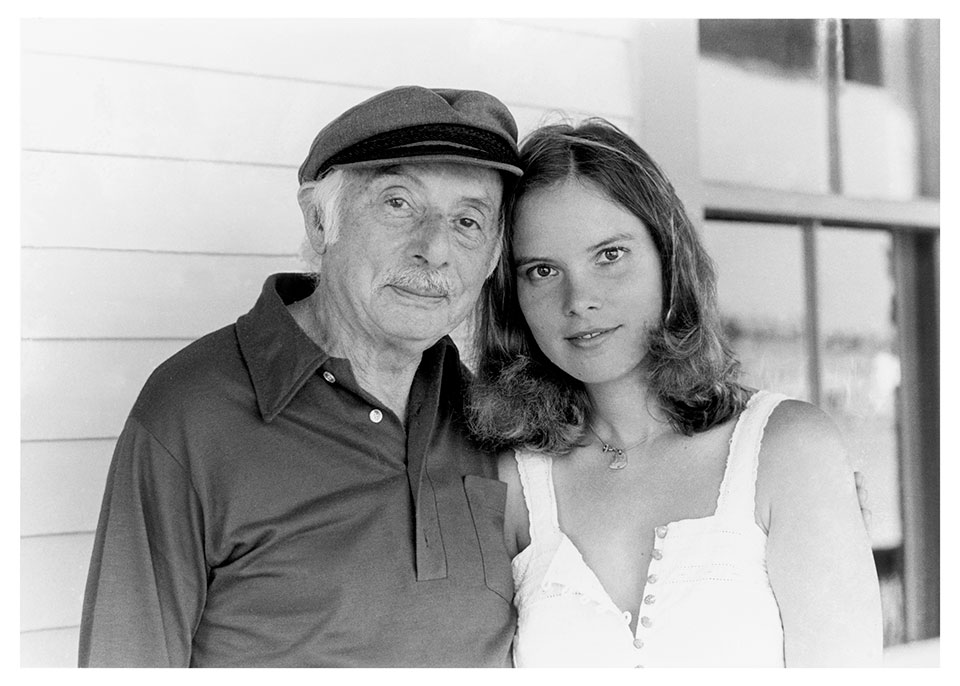
deNiord: For the sake of your career?
Forché: He was just worried, he didn’t think it was good for me—I needed to extricate myself from all of this. In fact, I don’t remember anyone in the literary world thinking that I should keep pursuing this human rights work and this interest in Central America. Denise Levertov, yes. She was supportive. And also Daniel Berrigan and Grace Paley. But most everyone else thought that all this had nothing to do with poetry. “You are betraying and wasting your gift,” they said.
deNiord: And this seemed to fuel your fire even more in many ways.
Forché: Well, yes, but I didn’t feel that way at the time. I felt myself to be apart from the literary world, cast off perhaps.
deNiord: We talked about your difficulty in writing The Country Between Us and The Angel of History and Blue Hour.
Forché: I was filling notebooks and doing sketches, and I was evolving toward this—
deNiord: And when you said you were filling your notebooks full of fragments or broken writing—
Forché: Which I thought were nothing—
deNiord: Which you thought didn’t make sense, and then suddenly one day you said you woke up, and what’s interesting about this is that it was really at the height of postmodern writing and its indeterminate thinking, right? But your brokenness, your fragmented writing, seems very determinate in many ways. It’s broken in the way lives and people are broken in extremity.
Forché: Yes, it’s not . . .
deNiord: It’s not postmodern in any kind of obscure or indeterminate way.
Forché: No, it isn’t.
deNiord: And so that’s another kind of curveball that you threw at a lot of people.
Forché: I don’t mean to throw curveballs! Daniel Simko is the first one who recognized that I should attend to this and not consider the writing simply “notes toward.”
deNiord: The babysitter.
Forché: Yes, my rescuer, actually. I met him originally in Iowa City, where he studied for one summer when he was very young. I had gone to give a reading for the Iowa Writers’ Workshop, following publication of my first book. We connected after establishing that our families were from the same region of Slovakia, in the Tatra Mountains, and we met again several years later at Columbia University, where I taught for a time, and he studied.
deNiord: But what you seem to discover in these fragments became sort of lists in many ways.
Forché: Oh, yes, that work did evolve from an enumerative mode of writing. Inventories, catalogs.
deNiord: Well, but there’s a kind of diachronic sensibility in what you’re doing there.
Forché: That’s right, it’s not synchronic.
deNiord: And it would remind anybody who’s read the Bible of genealogical lists. So there’s a list and fugue strategy to many of your poems.
Forché: It becomes genealogical in terms of history.
deNiord: Absolutely. And it’s also just the exhaustive quality. Portrays a total devotion to the other. I’m not going to leave anything out. I’m not going to leave you out. So it’s anecdotal but it’s also exhaustive. And it’s like, Where did she come up with that idea? That detail, or this detail, and the notes you have in the back of Blue Hour, for instance, all the quotes that you put in there, are important allusions, in a diachronic way, to history itself.
Forché: That was an intertextual aspect that I hadn’t explored before, and which I may not do again.
deNiord: But they’re fascinating, they’re wonderful, you know.
Forché: Well, I was in this dialogue, since I didn’t have any—
deNiord: One by René Char. “The earth loved us a little, I remember.”
Forché: Yes. La terre nous aimait un peu je me souviens. Beautiful. René Char was very important to me, and Edmond Jabès was also, especially formally, and also David Jones’s In Parenthesis. All these were formal influences, a little bit of Whitman, too, in a funny way.
deNiord: So here you are being sort of anti-American in many ways, or un-American.
Forché: That’s the accusation. Some have even said that I’m not really an American poet, whatever that might mean, or not American enough . . .
deNiord: But many would call it the true patriotism of witnessing to things that were going on both here and internationally.
Forché: This country needs that.
What he found was a quasi-religious language that emulated the language of the sacred. That is witness.
deNiord: What made the ground fertile were the poets: French poets, Czech poets, Russian, Polish—
Forché: I felt in conversation with them. They were teaching me. When Terrence died in 1987, I had to keep going on my own.
deNiord: Okay, so here’s what I’m thinking. It became almost religious for you.
Forché: Well, yes, perhaps, in a way.
deNiord: And we talked about your empathetic inspiration. And yet you don’t really want to call it religious—because it’s poetry of witness, which can be both secular and religious.
Forché: It has that quality; it shares something with that sensibility. Terrence had that too, you know. He excused himself in The Survivor because he couldn’t deploy the language of irony or detachment. Neither did he want a melodramatic, emotional reaction. What he found was a quasi-religious language that emulated the language of the sacred. That is witness.
October 2015
Carolyn Forché’s first volume, Gathering the Tribes, was followed by The Country Between Us, The Angel of History, and Blue Hour. Her latest collection, In the Lateness of the World, is forthcoming. Nelson Mandela praised her international anthology, Against Forgetting: Twentieth-Century Poetry of Witness (1993), as “a blow against tyranny, against prejudice, against injustice.” In 1998 she received the Edita & Ira Morris Hiroshima Foundation for Peace & Culture Award for her human rights advocacy and the preservation of memory and culture. She holds a University Professorship at Georgetown University, where she directs Lannan Center for Poetics and Social Practice. She is currently at work on a memoir.
Editorial note: For more, read part 1 and part 3 of this interview, plus five of Forché’s previously unpublished poems.

